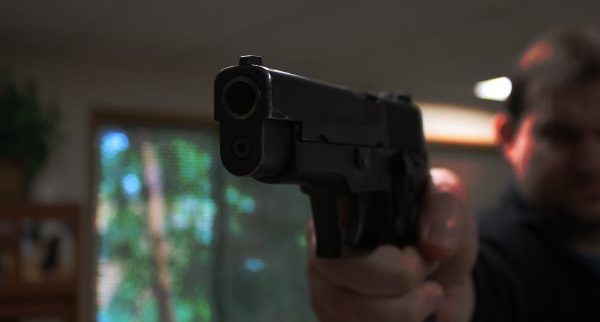
One of the latest crime phenomena is the increase in the number of catalytic converter thefts, and if one pays attention to the reactions from some KOMO News listeners to a story about a recent theft in which one of the perpetrators fired shots to deter responding car owners, this is a criminal activity that could turn deadly.
According to the Associated Press, stealing catalytic converters is a national problem. In Lawrenceville, VA, the media reports a recent string of such thefts. The National Insurance Crime Bureau “said the number of catalytic converter thefts reported in claims to insurance companies jumped from 3,389 in 2019 to 14,433 in 2020,” the AP reported.
In Placer County, CA, sheriff’s deputies rounded up a couple of suspects, and during a search of their vehicle, lawmen found “a catalytic converter, burglary tools, four pounds of marijuana in plain view, a digital scale, drug paraphernalia and a list of catalytic converter target locations,” Gold Country Media reported.
But up in Seattle, when a couple spotted a man crouching down behind their car, the wife called police while the husband went outside, “armed with only a garden hoe,” to confront the thieves, but one of them pulled a gun and fired a shot in the air.
That was simply too much for several people responding on Facebook to the KOMO story. One man wrote, “This is exactly why we are armed at ALL times! Especially when dealing with criminals in this state who seemingly have an endless supply of ‘get out of jail free’ cards.”
A second respondent wrote, “This is why you should be armed when you confront thieves. The state has already told them they can do what they want. It’s up to citizens now.”
But a third man put it bluntly, “Thieves should be shot on sight. No questions asked. There is NO excuse for theft and those that steal should be eliminated.”
Washington has an easily-understood use-of-force law, but it does not allow lethal force against property theft. However, at the point some suspect pulls a gun or any other kind of weapon in a manner leading the would-be victim to fear for his or her life, the rules change dramatically.
Homicide is also justifiable when committed either:
(1) In the lawful defense of the slayer, or his or her husband, wife, parent, child, brother, or sister, or of any other person in his or her presence or company, when there is reasonable ground to apprehend a design on the part of the person slain to commit a felony or to do some great personal injury to the slayer or to any such person, and there is imminent danger of such design being accomplished; or
(2) In the actual resistance of an attempt to commit a felony upon the slayer, in his or her presence, or upon or in a dwelling, or other place of abode, in which he or she is
Washington State has the second-highest number of active concealed pistol licenses of any state in the West (not including Texas). The state Department of Licensing reported Monday that 2021 ended with 639,298 active CPLs, down just over 4,000 licenses from the 643,317 reported Nov. 1, but it constitutes a dramatic recovery in the number of CPLs since issuing agencies began taking applications and issuing new CPLs in mid-2021. On April 1, 2020, the state reported just over 650,000 active CPLs. However, as the new year unfolds, the tide cold turn again with the number heading upward to pre-pandemic levels.
According to KOMO, the cost of replacing a catalytic converter can run about $2,000, so this is no petty crime, even without gunplay. The Legislature convenes next week, and there is already one bill that would prohibit scrap metal dealers from buying catalytic converters from anyone other than a commercial enterprise or a vehicle owner. Scrap dealers who violate the law would be charged with a misdemeanor. An editorial in the Seattle Times calls this a “good start,” but readers have their own ideas.
The Associated Press report says catalytic converter thieves, “can expect to get anywhere from $50 to $300 if they sell the converters to scrap yards, which then sell them to recycling facilities to reclaim the precious metals inside, including platinum, palladium and rhodium.”
But in Washington State, the conversation has turned to a far less valuable metal: Lead.